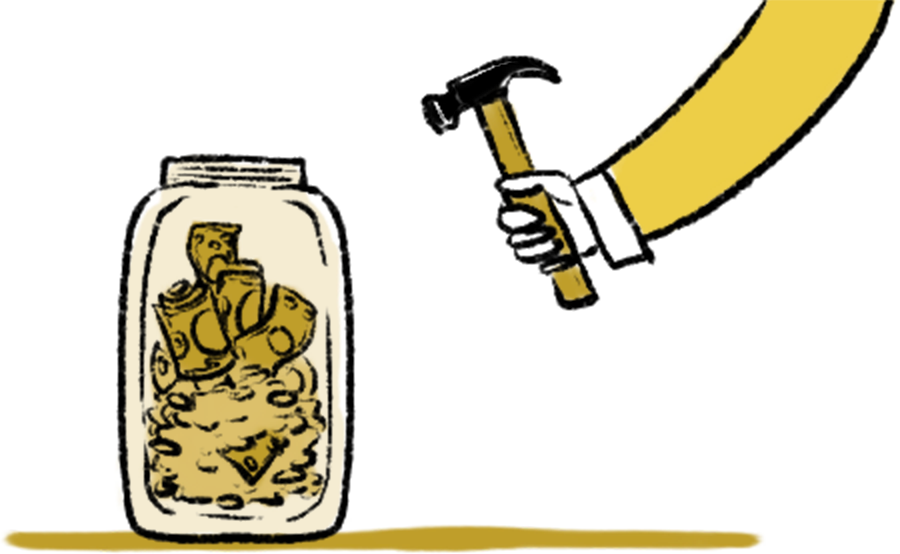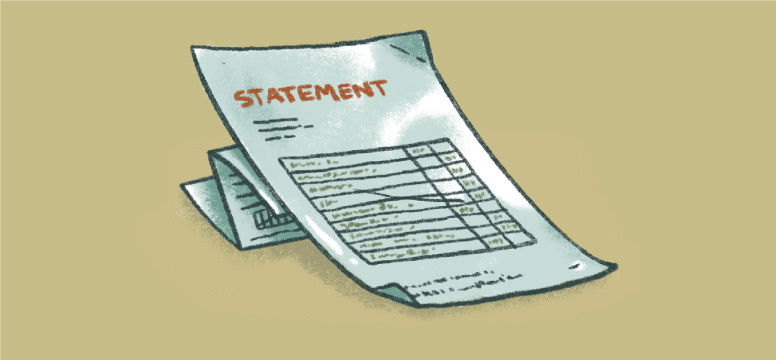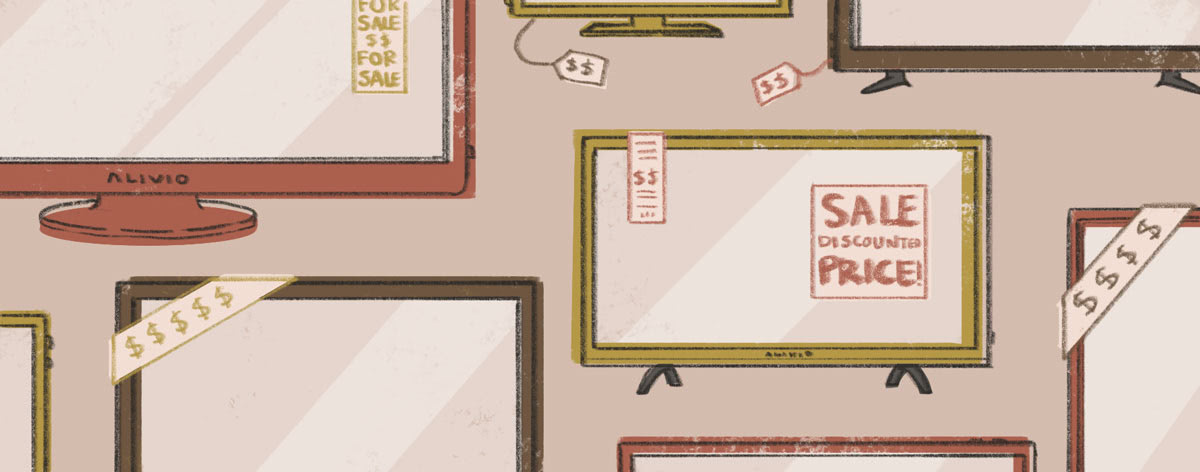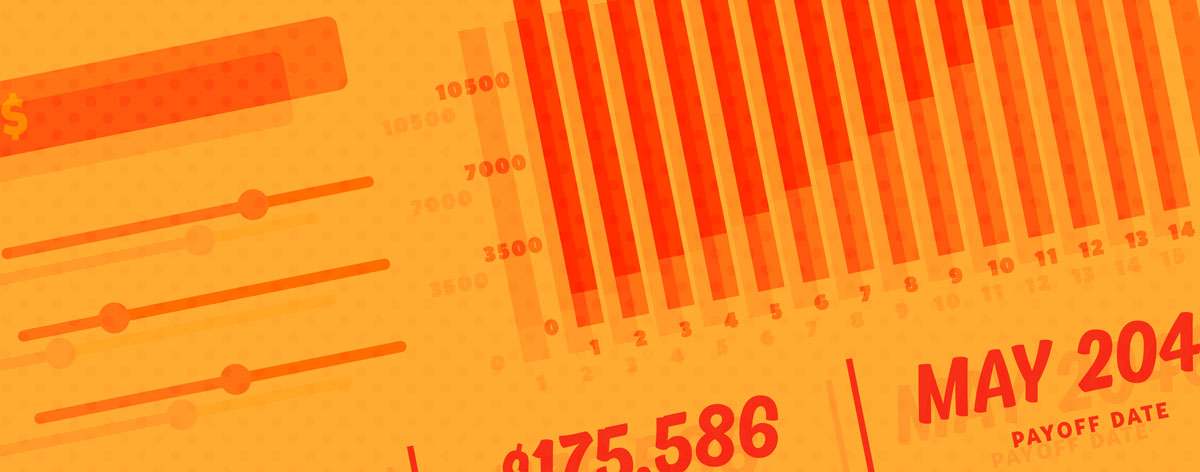How To Manage Your Debt: Strategies & Tools
In this article:
There isn’t just one reason that people fall into debt. It’s a complex issue and solutions aren’t one-size-fits-all. Discover how to start managing your debt with these tips and tools.
While being in debt is never ideal, some types of debt are better than others because of the effect the debt can have on you or your net worth. To reflect this, debt is sometimes broken up into “good debt” and “bad debt.”
“Good Debt” is debt that is an investment back into yourself or that increases the value of what you own. That could include things like student debt or things that can grow in value over time such as a mortgage or investments.
"Bad Debt” is when you borrow for something that you are losing money on. This could include things like credit card purchases for clothes or food and payday loans. Because of how quick cars lose value, auto loans often walk the line between “good” and “bad” debt.
That being said, even if your debt is technically “good,” that doesn’t mean it won’t still end up hurting you if you become unable to make your payments.
There are strategies to help you get back in control if you’ve found yourself falling behind or growing impatient with your debt payments.
- Debt Snowball Method: With this method, you start small and work your way up. Begin by paying off your smallest debt first. Then, take the amount you were paying for that debt and pay it toward the next smallest debt, and so on until everything is paid off.
- Debt Avalanche Method: Just like an avalanche, you knock out the big things first and then work your way down. Focus on paying off your highest interest rate first, then roll those funds into the next highest, and then the next.
- Debt Management Plan: This is a plan set up by a non-profit or credit counseling agency to help you pay off your debts. Your counselor negotiates and handles everything with your lenders, often helping you get a lower interest rate or waiving fees. Once it’s set up, you only need to make a single payment to the agency, they handle the rest.
- Debt Consolidation Loans: Debt consolidation allows you to combine all of your debts into one payment by taking out a new loan, ideally with a lower interest rate, and using it to pay off your debts. Be careful though, sometimes you could end up being in debt longer because of the new loan and thus paying more interest overall.
The Banzai Get Out of Debt Coach can help you make a customized plan to pay off your debt and learn more about what some of these strategies could look like for you.
Beyond the major debt payoff strategies, there are other adjustments that you can make to impact your debt.
- Reduce Expenses: Free up cash towards debt repayment by reducing expenses, at least in the short term. This could mean anything from a temporary spending freeze on everything except for required bills and living essentials to longer-term solutions like finding a cheaper place to live, renting out a room in your home, subletting your apartment (if permitted by your lease), selling a vehicle, or other efforts.
- Pay More Than Your Minimum Balance: Adding even just a little bit of extra money to your monthly payment can help you pay off your debt sooner and pay less overall. Just how much of a difference can it make for you? Use the Debt Payoff Calculator below to find out.
- Negotiate With Your Creditors: If you’re struggling to pay even the minimum on your debt payments, contact your creditors about making your payments easier to manage. Often, they may be willing to negotiate the terms of your credit agreement so you can make smaller and more manageable payments. Keep in mind that lower payments means it will take longer to pay off debts and you’ll pay more interest in the process.
- Use Debt Counseling Services: If the thought of contacting creditors to work through renegotiations sounds overwhelming, consider recruiting the help of a credit counselor or a debt settlement company. Credit counseling organizations are typically nonprofits that offer advice, educational materials, and workshops. They may put together a debt management plan. Usually with these plans, you make a single payment to the credit counseling organization every month or pay period, and then they make payments on your debts. Debt settlement companies, in contrast, charge a fee to arrange debt settlements. Be careful about any arrangements that require an upfront fee or suggest that getting out of debt is quick or easy. Fees should only be charged based on settled debt amounts. Get more information from the National Foundation for Consumer Credit. You can also use the Banzai Debt Coach to make a plan.
You may have access to other avenues for repaying debt, but approach these options with caution. Each should be considered carefully; keep your eye on the goal of improving your overall financial situation.

Pause Retirement Contributions
You may decide to pause contributions to a workplace 401(k) retirement plan and put those funds toward debt repayment. It may be that the amount you owe in interest is far more than what you’ll earn in the short-term. However, if your workplace offers a matching contribution, keep in mind that you’ll lose out on the match if you’re not making contributions. If possible, reduce your contributions to the minimum required to qualify for matching funds.
Borrow from Retirement Plan
Borrowing money from your retirement plan may seem like the best way to free up cash right now. Taking out too much money, however, could impact the long-term growth of your retirement funds. Carefully consider how much to borrow. Usually, you’ll have up to five years to repay a 401(k) loan, but if you leave your job before the loan is repaid, you’ll have to pay the money back in full. Otherwise, it is considered a distribution or early withdrawal, and subject to tax penalties. Learn more about tapping into your retirement funds with the Early Withdrawals From Retirement Savings article.
Utilize Home Equity Loans
Some people use a home equity loan to pay off debt. Home equity loans capitalize on the difference between what you owe on your mortgage and what your home is worth. It’s a second mortgage that you’ll need to make regular payments on. If you can’t make the payments, you risk putting your home in default. In the case of a home equity line of credit, or HELOC, you may only be required to make payments on the interest during the withdrawal period, which could be as long as 10-20 years.
When you’re back on your feet financially, start setting aside money towards an emergency fund. Ideally, you want to keep three to six months of living expenses in a liquid account that you can easily access. But even a few hundred dollars set aside for rainy days can help you avoid using a credit card and building up more debt. Check out the Emergency Funds article to learn more.
Neither Banzai nor its sponsoring partners make any warranties or representations as to the accuracy, applicability, completeness, or suitability for any particular purpose of the information contained herein. Banzai and its sponsoring partners expressly disclaim any liability arising from the use or misuse of these materials and, by visiting this site, you agree to release Banzai and its sponsoring partners from any such liability. Do not rely upon the information provided in this content when making decisions regarding financial or legal matters without first consulting with a qualified, licensed professional.


